Natural Resource Sciences Graduate Degrees
The Natural Resource Sciences (NRS) program prepares students for the environmental challenges of the 21st century. The Master of Natural Resources Management (MNRM), Master of Science (MS) and the Doctor of Philosophy (PhD) degrees are interdisciplinary and offer a broad, systems- based approach toward managing natural resources. NRS graduates are prepared to compete for and be productive in jobs where issues reach beyond a single discipline or subject area. They have the skills necessary to address problems from a sustainable social-ecological perspective. Students choose to pursue an MS or PhD in one of four emphases to further their skills and prepare for a variety of careers. More information on each of the four emphases can be found below.
The MNRM program is coursework only and can be done in-person or online. Through the NRS graduate program, students gain a breadth of knowledge in relevant planning, analysis, and management in a wide variety of natural resource fields from pollinators to pest management, cropping systems to soil health, wetlands to wildlife, and restoration to grazing management.
The NRS graduate program is to provide formal education in a chosen specialty area, introductions to other subject areas, appropriate course work in analytical methods, and research and writing experiences in the general area of natural resource management. Problem recognition, definition, analysis and resolution, along with critical thinking are the ultimate learning objectives.
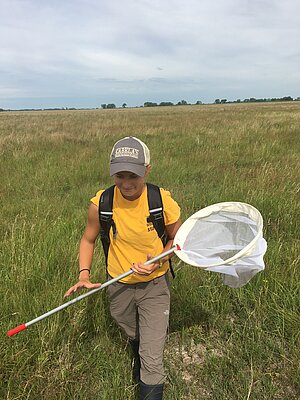
Entomology
Advanced work in the Entomology emphasis involves specialized training in the following areas: behavior, biochemistry, biodiversity, biological control, chemical ecology, ecology, host plant resistance, insect pathology, pest management, molecular genetics, physiology, and systematics. The degree program also participates in interdisciplinary programs in Environmental and Conservation Sciences. The close working relationship between the department and the USDA Red River Valley Agricultural Research Center, located on campus also provides students many opportunities for research and consultation.
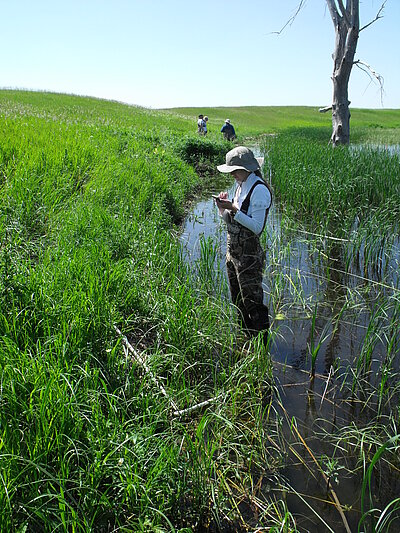
Natural Resources Management
The Natural Resources Management (NRM) emphasis area prepares students for the environmental challenges of the 21st century. The emphasis is interdisciplinary and offers a broad, system-based approach toward managing natural resources. Program graduates are prepared to compete for and be productive in jobs where issues reach beyond a single discipline or subject area. They have the skills necessary to address problems from a sustainable social-ecological perspective.
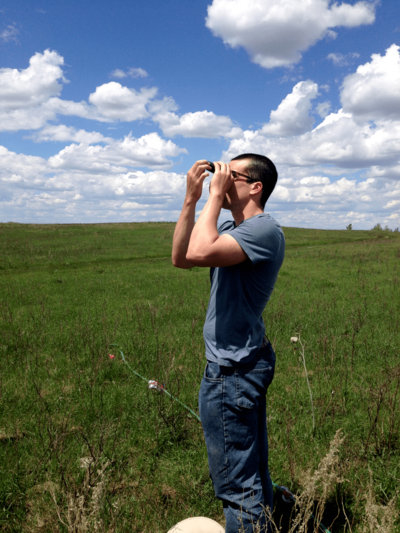
Rangeland Ecology and Wildlife Management
The Rangeland Ecology and Wildlife Management emphasis includes advanced work and specialized training in the following areas: rangeland ecology, fire ecology, plant community dynamics, restoration of ecosystem services, ecosystem reclamation, and wildlife population dynamics in rangelands.
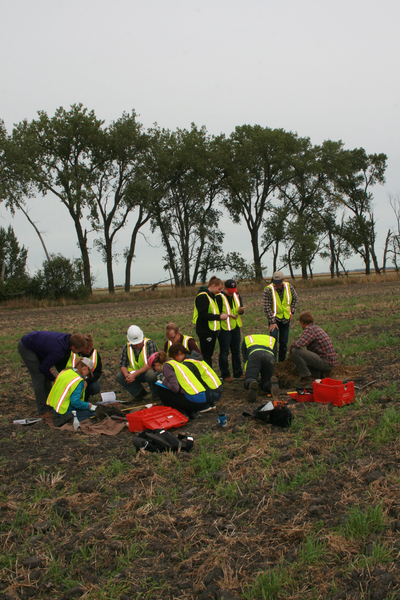
Soil Science
The Soil Science emphasis provides training in agricultural and/or environmental career tracks. The instructional research programs emphasize an understanding of soil-plan-atmosphere interactions and their application to soil and water resource management. Students may pursue emphasis in soil chemistry, soil fertility, soil ecology, soil physics, soil reclamation, soil genesis and morphology, soil management and conservation, environmental modeling, water quality, and soil salinity and sodicity.
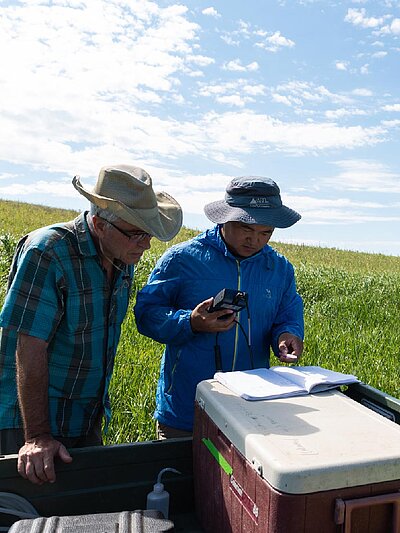
Master of Natural Resource Management
The Master in Natural Resource Management (MNRM) degree is a course-based master's degree that allows you to further your post-Bachelors education in disciplines related to natural resources. The interdisciplinary degree consists of 30 credits focusing on many different areas including range, entomology, soil science, and other natural topics. This program offers flexibility as students can take it fully in-person, fully online or a combination of both.
Recent Graduates Are:
- Environmental Consultants
- University Faculty
- Pest Management Specialists
- Conservation Advocates
- Research Specialists
- Area Extension Specialists
Additional Information
Graduate Program Contact Information
Master's Degree Policies: Plan of Study
Master's Degree Policies: Supervisory Committee


